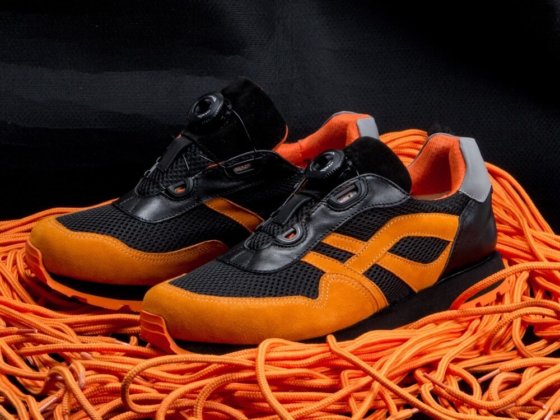Founded in 2013, the company now has more than 4,200 stores in 80 countries around the world and continues to grow rapidly.
Last week, Miniso began a public sale of shares on the New York Stock Exchange, which is another important step towards reaching new heights. Despite criticism that the chain is essentially a copy of such well-known Japanese retailers as Uniqlo and Muji, it is growing much faster than them.
As of October 19th, Miniso's market capitalization was about $7 billion. As a result of the IPO, about $600 million was raised, which the company plans to spend on opening new stores selling all sorts of things.

According to Ye Guo Fu, Founder and CEO of Miniso, Miniso's main competitive advantage lies in high quality products and frequent launches of new products. The brand's product development policy calls for the introduction of 100 new items, selected from 10,000 ideas, every seven days. The constant release of new products attracts young buyers. About 60% Miniso customers in China are under 30 years old.
The chain stores are literally bursting with a variety of goods, the cost of which sometimes does not exceed 10 yuan (1.50 US dollars). You can also buy, for example, a water bottle with a picture of Mickey Mouse for 49.90 yuan (7.5 dollars) or a Pikachu soft toy for 35 yuan (5.2 dollars). In general, the cost of goods rarely exceeds 50 yuan. The number of titles exceeds 8000, all of them are divided into 11 categories. And this is not only clothes, but also toys, cosmetics and sweets.
Ye Guo Fu is a native of the Chinese province of Hubei. After a successful experience with a chain of accessories stores in Guangdong, he founded Miniso in 2013. It is said that Ye Guo Fu is a big fan of everything related to Japan. Frequently visiting this country and observing the work of retail stores, he made a number of conclusions that allowed him to found a company whose rapid growth causes surprise among experts and envy of competitors.
Just seven years after its launch, Miniso has become one of the world's largest multi-store store operators. However, most outlets are run by local companies that have signed franchise agreements with Miniso. The goal of the founder is to launch 10,000 stores. In 2019, the company began working with global brands. To date, she has 17 major partners, including Disney and Hello Kitty.
Such indicators cannot fail to impress. But you should not think that everything is perfect. Thus, the coronavirus pandemic forced the suspension of the opening of new outlets and negatively affected the company's sales, which fell by 4.5%.
As for profitability, everything is not clear yet. Miniso has only disclosed its earnings for the last two financial years, during which it has suffered a net loss. And the profit situation becomes more confusing the more the company opens stores. There is an opinion that Miniso's gross margin is much lower than that of its competitors.
Miniso also has other problems. For example, the company was criticized in September after it was discovered that the nail polish it sold contained carcinogens at concentrations 1,400 times higher than the permissible limits. Also, Chinese media reports that the company is involved in more than 10 lawsuits related to intellectual property.

There are also questions about the official history of the brand. For example, Miniso's Japanese website says that the company was founded by Ye Guo Fu with Japanese designer Miyake Junya in Tokyo before entering the Chinese market. And this directly contradicts the information on the Chinese website. And the specified address of the Japanese division of Miniso does not exist. The company has promised that it will fix inaccuracies in various versions of the site, but this has not yet happened.
Until now, all these difficulties have not yet greatly affected the pace of development of Miniso. But how things will develop further is still unclear. The company, at least, will have to become more open and solve all the existing problems, if it intends to continue to develop at the same pace. Otherwise, the consequences can be negative. So, in June 2020, the Chinese chain of coffee houses Luckin Coffee, which grew even faster than Miniso, was delisted from the US stock exchanges due to accounting fraud and $310 million in fake sales.














